I have a Store Procedure like below and how to execute from SQL Developer?
PROCEDURE CFR.GET_ALL_ERROR_HISTORY
Argument Name Type In/Out Default?
-------------- ---------- ------ --------
T1_CURSOR REF CURSOR OUT
P_QUERY_TYPE NUMBER IN
P_DATE_START DATE IN DEFAULT
P_DATE_END DATE IN DEFAULT
P_COMP_NUMBER NUMBER IN DEFAULT
P_COMP_GROUP_ID NUMBER IN DEFAULT
When running my code in Visual Studio
ORA-06550: line 1, column 7:
PLS-00306: wrong number or types of arguments in call to 'GET_ALL_ERROR_HISTORY'
ORA-06550: line 1, column 7:
PLS-00306: wrong number or types of arguments in call to 'GET_ALL_ERROR_HISTORY'
ORA-06550: line 1, column 7:
PL/SQL: Statement ignored
My VS Code
Dim oracleParameter(3) As OracleParameter
oracleParameter(0) = New OracleParameter()
oracleParameter(1) = New OracleParameter()
oracleParameter(2) = New OracleParameter()
oracleParameter(3) = New OracleParameter()
oracleParameter(0) = cmd.Parameters.Add("T1_Cursor", dbType:=Oracle.ManagedDataAccess.Client.OracleDbType.RefCursor, ParameterDirection.Output)
oracleParameter(1) = cmd.Parameters.Add("p_Date_Start", dbType:=Oracle.ManagedDataAccess.Client.OracleDbType.Date, val:=dteStart, ParameterDirection.Input)
oracleParameter(2) = cmd.Parameters.Add("p_Date_End", dbType:=Oracle.ManagedDataAccess.Client.OracleDbType.Date, val:=dteEnd, ParameterDirection.Input)
oracleParameter(3) = cmd.Parameters.Add("p_Query_Type", dbType:=Oracle.ManagedDataAccess.Client.OracleDbType.Decimal, val:=intQueryType, ParameterDirection.Input)
I am new to procedure and if you can guide me with how to solve this. I can solve all the rest on my own
